June 2023 – COA Patient Advocacy Network News Bulletin
Advocacy Chats: Cancer Survivorship – The Impact on Mental Health
Cancer survivors face mental health challenges entering a new phase of life with potentially different physical capabilities, emotional states, outlook, and plans for the future. COA’s Rose Gerber, MS (director of patient advocacy and education), and Center for Oncology Psychology Excellence’s Diane Simard (founder) will discuss their own experiences as cancer survivors, the importance of mental health support for patients and survivors, and more today, Wednesday, June 21 at 12:00pm ET. Register Today
CPAN Advocates Visit Congress, Push for PBM Reform
Last Tuesday, over 120 patient and provider advocates from 31 states met in Washington, D.C. to tell Congress that PBM reform is needed NOW. These advocates held over 200 meetings with members of Congress and their staff, spreading the message of high-quality, affordable cancer care to the nation’s decision-makers. Read more about Hill Day on the COA website.
ICYMI: Clinical Trials in the Community Oncology Setting: Positive Impact on Patient Care
Clinical trials offer patients innovative and safe treatment options—but many patients don’t know how to get started. COA’s Rose Gerber and Florida Cancer Specialists & Research Institute’s Vice President for Nursing and Research, Colleen Lewis, MSN, ANP-BC, AOCNP, discussed the positive impact of clinical trials, how they work, and how community oncology practices are leading the charge to involve patients in the development of new medicines. Stream it on @OncologyCOA’s YouTube channel today.
Advocacy Spotlight: Chelsea Klock, RN, OCN
CPAN Chapter Advocacy Leader, Hematology-Oncology Associates of Central New York, East Syracuse, New York
Patient voices are critical in promoting the value of community oncology. That’s why Chelsea Klock, RN, OCN, stepped up to lead her practice’s COA Patient Advocacy Network (CPAN) chapter.
As a registered nurse at Hematology-Oncology Associates of Central New York, Chelsea understands that the core mission of personal, patient-centered care sets community oncology apart from other care settings—and wants to make sure that those making decisions at the state and federal level understand it too.
“Our patients’ stories are helpful for policymakers to hear and act on,” she said. “CPAN ensures the voice of community oncology is heard where it matters most: in the halls of Congress, the White House, and state capitols.”
As the CPAN chapter leader, she educates patients, survivors, caregivers, and providers on the latest challenges facing community oncology and actively advocates for federal and state reforms on issues including pharmacy benefit manager abuses and step therapy.
She says that advocates not only find a community in CPAN, but a larger purpose: ensuring locally delivered cancer care is available to those who need it.
To learn more about why CPAN advocates are committed to protecting locally delivered cancer care, visit CPAN’s Advocates & Their Stories page.
Cancer News You Can Use
Post-Public Health Emergency Fallout Hits Patients – Axios 06/05
Cancer doctors and dozens of lawmakers in Congress are questioning whether the Centers for Medicare and Medicaid Services overreached when it blocked medical practices from mailing specialty drugs like oral cancer and blood clotting treatments directly to patients at the end of the COVID public health emergency. The Community Oncology Alliance is weighing a lawsuit, saying the CMS circumvented the federal rulemaking process that gives industry groups a chance to comment on policy changes.
Gut Bacteria May Explain Why More Young People Are Getting Colon Cancer—And How To Prevent It – Insider 05/26
The gut microbiome might be an important key to help determine whether a young person will develop colon cancer, a new study suggests. Georgetown University researchers analyzed the bacteria in the tumors of 36 people under 45 with colon cancer versus those of 27 people over 65 with the disease and found several bacteria were more present in the guts of younger patients. Since diet and environmental factors impact the makeup of the microbiome, better understanding what it looks like in colon cancer patients can help determine what foods to avoid for prevention.
As Cancer Drug Shortages Grow, Some Doctors Are Forced To Ration Doses Or Delay Care – NBC News 05/26
Widespread shortages of cancer drugs are forcing doctors to make difficult decisions about how to treat their patients, including rationing doses and turning to other treatment options with potentially more side effects. Among the drugs in shortage is carboplatin, a chemotherapy agent used as a first-line treatment for a number of cancers—a more effective, less toxic, and less disruptive treatment than other available drugs.
COMMUNITY ONCOLOGY 101 – Community Oncology is Personal
Community oncology isn’t just about battling cancer—it’s about putting patients first. Hear from patients with cancer and survivors about the supportive, personal nature of community oncology that sets it apart from other care settings. Learn more.
Resources for Chapters
Personal stories and education are essential in the fight to protect community-based cancer care—that’s why COA compiles educational videos, patient stories, and key policy updates on the @OncologyCOA YouTube channel. Browse dozens of videos and learn about the biggest challenges and opportunities in community oncology.
Recent News & Updates
Waldenström macroglobulinemia (WM) is often slow growing, with many patients experiencing no symptoms for years, according to Alisha Kimble, senior outcomes researcher at Ontada.
This year, more than 2 million Americans will hear the scary words: "You have cancer."
Uterine cancer cases in the U.S. will rise significantly by 2050, with Black women three times more likely to die from it, a study published by the American Association for Cancer Research (AACR) projects.
Prostate cancer is one of the most common cancers in men – and it can affect everything from how you pee to your sex life.
